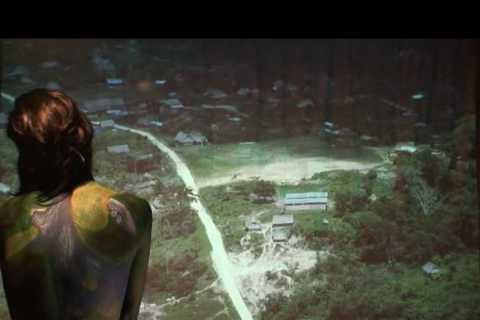By José Heder Benatti.
This paper is a preliminary legal reflection on the role of common property in the Brazilian Amazon. It suggests the integration of two distinct normative scopes of the society, the legal right and consuetudinary law, with the objective to argue that the legal instruments of the Brazilian society can be used to protect the cultural and natural patrimony.
Other information
Targeting the media
After French industrialist Vincent Bolloré filed two lawsuits against Radio France Inter, both for alleged defamation regarding plantations operated by SOCAPALM (Société Camerounaise de Palmeraies), photographer Isabelle Alexandra Ricq and researcher Julien-François Gerber addressed ten lies typically used to defend Bolloré, one by one.
Over the last few years, Uruguay has gained international attention as a result of the drawn-out conflict with Argentina over plans for the installation of two “mega” pulp mills in Uruguay, one by the Finnish company Botnia and the other by ENCE of Spain.
Tree plantations owned and operated by Forestal Valdivia S.A., a subsidiary of the Arauco group, have not only been granted certification by the Chilean sustainable forest management system CERTFOR (backed by the international Programme for the Endorsement of Forest Certification or PEFC label), but also chain of custody certification from the FSC (SGS-COC-005376).
Guatemala is facing the possibility of an extension of contract 2-85 that is threatening to expand and increase the oil frontier in one of its most important natural areas, the Laguna del Tigre national park This is the country’s biggest national park and the core area of the Maya Biosphere Reserve, classified under that protection category in 1990 because of its international ecological importance.
On 19 and 20 March this year, peasant, indigenous and quilombola* communities and movements from the States of Espirito Santo and Bahia who are fighting to get back their territory invaded by monoculture eucalyptus plantation companies, paid a visit to Raiz and Vereda Funda in the locality of Rio Pardo in the north of Minas Gerais, in solidarity and to exchange experiences with these two communities struggling to regain their traditional territory.
GeaSphere and EcoDoc have just launched a report by Liane Greeff of EcoDoc Africa, “Thirsty alien trees, no water left and climate confusion – what version of sustainable development are we leaving our children”. The paper highlights the dramatic contradiction of the expansion of water intensive industrial timber plantations in South Africa under planned development programmes, and the scarce water resources of the country.
Over the past few decades, oil palm plantations have rapidly spread throughout Asia, Africa and Latin America, where millions of hectares have already been planted and millions more are planned for the next few years. These plantations are causing increasingly serious problems for local peoples and their environment, including social conflict and human rights violations.
On 16 March 2010, Henrique de Souza Pereira, 24-years old, was killed by a team of guards of the private ‘security’ company hired by Fibria, former Aracruz Celulose and partner of Stora Enso in the Veracel Celulose company.
To: APHIS (Animal and Plant Health Inspection Service)
Montevideo, April 10, 2013
The World Rainforest Movement (WRM) is an international organization, founded in 1987 and based in Uruguay, working on tropical forest and forest-related issues, including industrial tree plantations.
For many years, the WRM has monitored and studied several aspects of the expansion of industrial tree plantations worldwide. One of these is the trend promoted by tree plantation companies to introduce plantations of genetically engineered trees.
This story has been cultivated with the thoughts, the experience, the dreams, the words and the hands of women shell-gatherers from the Province of Esmeraldas, in northern Ecuador.



